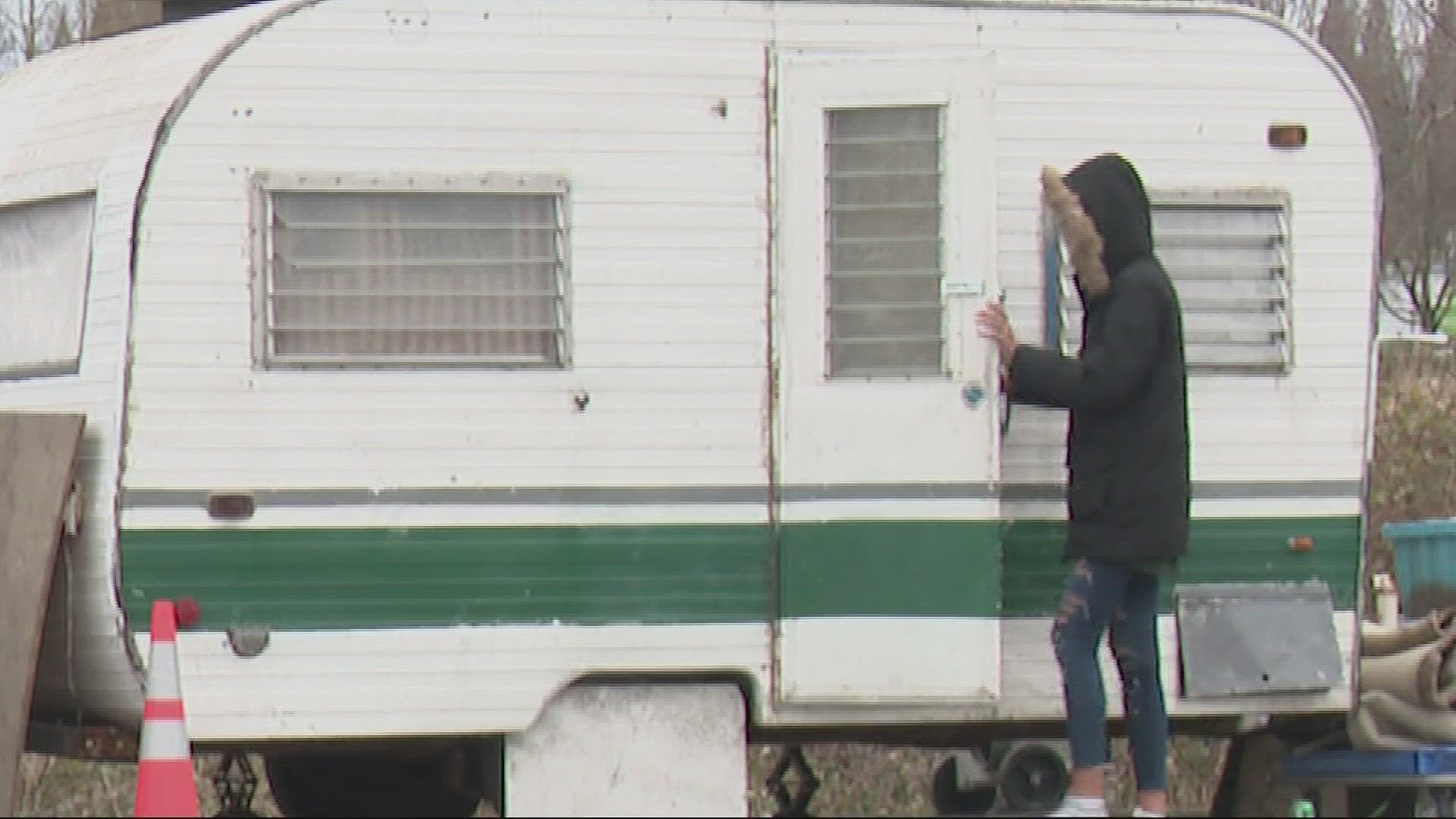PORTLAND, Ore. — It's often considered an eyesore for those passing by, but for homeless residents in the RVs and trailers that line a section of Northeast 33rd Drive, the area is a community. For many of them, it's the only stability they have.
"Everybody on this street, they help each other out," said Mackenzie, who lost her job and housing and now lives in a tiny trailer borrowed from a friend.
Mackenzie said the community on 33rd Drive is the first place she's felt safe in five years. Conditions can be scary and threatening for people living on the streets, especially for women.
"A lot of females on the street have been raped, kidnapped, things like that," she said, adding that she herself has experienced some of those conditions.
Feeling vulnerable, and with nowhere to go for help, Mackenzie said she protects herself in the only way she knows how.
"I don't go out alone at night, I try to stay with somebody," she said. "I have a boyfriend now, so nothing's happened since then."
That hasn't always been the case, she said — her past relationships turned abusive due to drug addiction.
"Some people, when they don't have their drugs, they just get angry and take it out on the people closest to you," she said.
Mackenzie and many other homeless women have lived in a fear that's almost indescribable.
"I would just cry all the time because I wanted to wake up from the nightmare," she said.
Domestic violence risk
At the organization Bradley Angle, which works to support survivors of domestic violence, Intake Coordinator Mackenzie Cruickshank said Portland's housing crisis extends to both homeless services and domestic violence services.
Bradley Angle works to connect domestic violence victims with safe housing. About 75% of the organization's calls are from women experiencing some form of homelessness.
"It's usually definitely the biggest factor for folks," Cruickshank said.
There are three primary domestic violence shelters in Multnomah County, and they all often fill up because they're still operating at limited capacity due to COVID-19 concerns.
"You're working with folks to find all the options available, and there aren't really a lot," Cruickshank said.
The result is that young women are often left longing for safety, making Mackenzie's story far from unique.
"I don't feel very good about myself these days," Mackenzie said. "It's sad, it's really sad. I would not wish it upon anybody."
Mackenzie said she's tried to find housing, but gets lost in the system. She also struggles with an addiction to meth, which she described as a coping mechanism for her circumstances. Talking with her, it becomes obvious how the trauma she's experienced on the streets has worn on her.
Those who work to help victims say more money needs to be spent to open additional domestic violence shelter space, along with offering more education around the resources that are available, so outreach workers can reach more women like Mackenzie.

